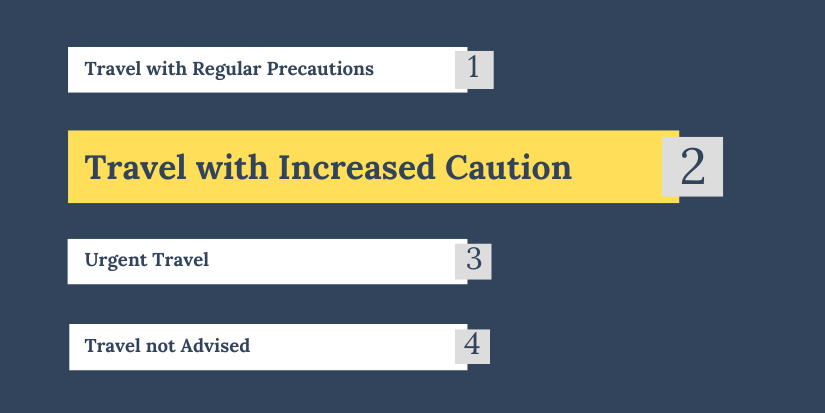
VISA REGIME
For holders of national passports and other travel documents: Visa required
For holders of diplomatic and official passports: No visas required for visits up to 90 days within period of 180 days
Note: Holders of emergency travel documents in transit require a visa
ENTERING AND LEAVING THE COUNTRY
Citizens of the Republic of Serbia can enter Ghana. It is necessary to have a travel document, valid for at least 6 months from the planned return from Ghana, and an appropriate visa.
A yellow fever vaccination certificate is also required for entry.
If one plans to stay in Ghana for more than 90 days in a calendar year, it is necessary to register with the National Identification Authority (https://nia.gov.gh/) and obtain a non-citizen ID card.
SOCIAL SECURITY AGREEMENT
No social security agreement has been signed.
USEFUL INFORMATION
HEALTH SITUATION — There is a risk of diseases characteristic of tropical areas. There is a particularly high risk of malaria, which is why it is recommended to take preventive measures, minimal outdoor exposure during sensitive periods of the day (dawn, dusk) and the use of insect and mosquito repellants. Ghana belongs to the so-called meningitis belt and there is a high risk of infection, especially during the dry season. There is also a risk of typhoid fever. Rabies is a common phenomenon, and the danger is greater when staying in rural and uninhabited areas. Prior vaccination against hepatitis A and B, as well as tetanus, is recommended. It is necessary to take care of water and food, which, due to the conditions, can be contaminated with parasites and bacteriologically defective. The use of bottled drinking water is especially recommended. It is also necessary to take into account the risk of heat stroke and dehydration, and that is why you should avoid prolonged exposure to the sun and drink water more often. Also, there is a great danger of sexually transmitted diseases, especially HIV. Swimming in freshwater streams and lakes should be avoided, due to the risk of infection, and when it comes to the ocean, due to strong currents. Due to the very expensive health services, it is necessary to have travel health insurance, which should include the eventual costs of medical evacuation and hospital treatment.
SECURITY SITUATION — The crime rate has increased in recent years, especially in major cities such as Accra, Kumasi, Takoradi and their suburbs. Petty theft in public places is a common occurrence. There is also the danger of violent criminal acts, such as armed robberies, home invasions, kidnappings, and armed attacks on roads. There is a risk of terrorism, given the generally deteriorating situation in the region. There is a danger of ethnic and tribal conflicts and violence, especially in the border areas. There is a constant risk of fraud (primarily online), which one should be cautious of.
TRANSPORT — Public city transport is almost non-existent and is mainly carried out via mini-buses (the so-called tro-tro) which are mainly used by the local population. Taxi transportation is developed, and Uber or Bolt are especially recommended, due to their reliability and low prices compared to classic taxi-vehicles. During a tourist stay in Ghana, a motor vehicle can only be driven with an international driver's license. The quality of the roads varies and is in poor condition in some parts. Traffic accidents are very common, especially in city centers. Police roadblocks are common, especially during the evening hours and at night, and travelers may be subject to inspection.
OTHER INFORMATION — The official language is English. The currency is the Ghanaian cedi (GHS), and mainly USD and EUR are being exchanged among foreign currencies. It is recommended to exchange them in hotels, banks and authorized exchange offices. At the same time, it should be taken into account that the exchange rate varies from place to place of exchange. Foreign payment cards can be used in hotels, better restaurants, markets and exclusive shops and boutiques. Very often there are shortages in the supply of electricity and water, which affects daily activities. The quality of the internet network varies and in some places the signal is completely lost.
Contact information:
During your stay in Ghana, for a consular assistance and help you can contact the Embassy of the Republic of Serbia in Accra (address: 3 Dade Close, Labone) via the following contact phone number: +233 30 396 5516 or email address: milutin.stanojevic@mfa.rs .
